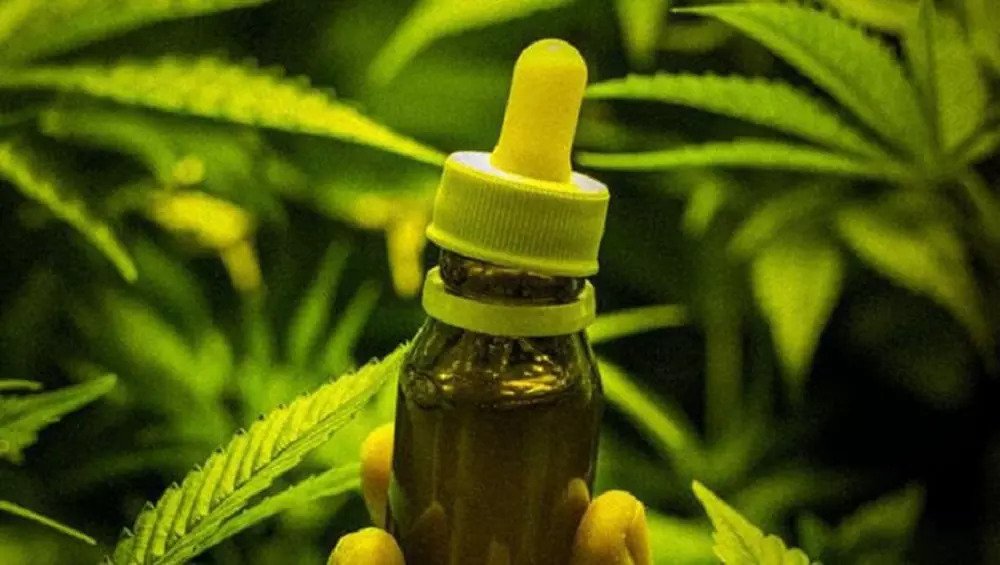RIO DE JANEIRO, BRAZIL – Campaigning for the command of the Brazilian embassy in Washington, United States, Federal Deputy Eduardo Bolsonaro (PSL-SP) began to support a bill that automatically permits the release of medications in Brazil already approved by foreign health authorities, such as the American FDA.
The bill would effectively bypass ANVISA’s, the Brazilian regulatory agency, and runs contrary to the government’s position on medical marijuana.

In addition to “son No. 03,” other government allies, such as the author of the proposal, General Peternelli, and Carla Zambelli – both PSL federal deputies – and General Eduardo Villas Bôas, have also advocated the use of cannabidiol.
If approved, the text supported by Eduardo would release the sale of at least one cannabidiol-based drug used to treat severe epilepsy in children, released by the US last year.
The use of plant-derived oil bypassed medical debate and moved forward on the political agenda after ANVISA held a public consultation, unsolicited by the government, to establish criteria for production and the consequent use of the substance in Brazil.
Criticized by Jair Bolsonaro’s government, the bill would authorize the planting of marijuana for medicinal use and restrict it only to enclosed places and under the control of accredited companies.
After concluding the consultation, the final format has not yet been presented. However, the Minister of Citizenship, Osmar Terra, and the Chief of Staff, Onyx Lorenzoni, have argued that Brazil should only adopt “synthetic cannabis” (which does not exist in Brazil) produced in laboratories, so as to avoid the need to plant it.
According to Terra news site, liberating planting would be the beginning of the legalization of drugs in Brazil, a theory also upheld by Bolsonaro during a visit to a pharmaceutical company in São Paulo last month. “The new direction of Brazil is that of a president who respects the traditional Brazilian family, a president who respects the innocence of the child in the classroom and says no to the process of drug legalization”.
In his speech, Bolsonaro also said that regulators hold great power in Brazil, “for better or for worse”. Next, he challenged the lengthy period needed to obtain an authorization to sell medical products, suggesting that the “excessive zeal of ANVISA” may even serve to encourage illegal expediting of the approval process.
Peternelli said he believes that the work of the Brazilian agency is good, but laments that ANVISA does not have any joint action with international bodies. And also that its project has been confined to the cannabidiol issue: “That’s not what it’s about. The bill does include cannabidiol, but not intentionally. When Eduardo (Bolsonaro) signed the bill, this controversy didn’t even exist,” he said.
However, he says he sees no problem in Brazil marketing natural marijuana medicines – not the synthetic model that the government is now advocating. “This is because they can be imported, even though the price prevents low-income families from having access to them.” Depending on the prescribed dose and its purpose, the treatment may cost more than R$1,000 per month.
Villas Bôas, a former army commander and current advisor to the Institutional Security Cabinet (GSI) of the Palácio do Planalto, suffers from Amyotrophic Lateral Sclerosis (ALS), a disabling autoimmune disease that can be treated with cannabidiol. In an interview with SBT last month, he said he is not using it, but he defended the drug and mentioned “social hypocrisy” when commenting on the hardships faced by patients seeking the drug.
Medical cannabis, or medical marijuana, is cannabis and cannabinoids that are prescribed by physicians for their patients. The use of cannabis as medicine has not been rigorously tested due to production and governmental restrictions, resulting in limited clinical research to define the safety and efficacy of using cannabis to treat diseases.
Preliminary evidence suggests that cannabis can reduce nausea and vomiting during chemotherapy, improve appetite in people with HIV/AIDS, reduces chronic pain and muscle spasms and treats severe forms of epilepsy.
Deputy Eduardo Bolsonaro did not reply to the reporter. The information is from the newspaper O Estado de S. Paulo.


